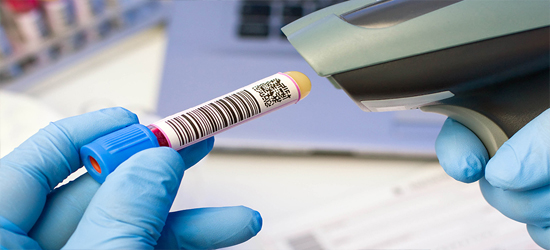Hematology Department
The Hematology Department at Barbsray Health Center is dedicated to the diagnosis, treatment, and management of blood-related disorders. This department specializes in a range of conditions that affect the blood, such as anemia, leukemia, clotting disorders, and hemophilia.
Key services provided:
Diagnosis and Testing: The department performs comprehensive blood tests, including :
Full Blood Count (FBC):
This is one of the most common tests done to assess the overall health of a person and detect various disorders such as anemia, infection, and many other diseases.
Blood Smear:
Blood smears are commonly used to examine the shape, size, and number of blood cells. This test is useful for diagnosing conditions like malaria, sickle cell anemia, and other blood-related diseases.
Hemoglobin and Hematocrit:
These tests measure the levels of hemoglobin (oxygen-carrying protein) and the proportion of blood made up of red blood cells, commonly used to detect anemia.
Reticulocyte Count:
Reticulocytes are immature red blood cells. This test helps evaluate bone marrow function and the rate of red blood cell production, especially important in diagnosing anemia.
Coagulation Tests:
These tests evaluate how well the blood is clotting. Common tests include:
Prothrombin Time (PT)
Activated Partial Thromboplastin Time (aPTT)
International Normalized Ratio (INR) These tests are important for diagnosing bleeding disorders and conditions like hemophilia.
Sickle Cell Test:
Sickle cell anemia is a significant health concern in Ghana. The sickle cell test, often performed through hemoglobin electrophoresis or a blood smear, is used to diagnose sickle cell disease or sickle cell trait.
Iron Studies:
Tests like serum iron, ferritin, and total iron-binding capacity (TIBC) are used to diagnose iron-deficiency anemia and other iron-related disorders.
Erythrocyte Sedimentation Rate (ESR):
This test measures the rate at which red blood cells settle at the bottom of a tube. A high ESR can indicate inflammation, infection, or certain types of cancer.
Platelet Count:
A platelet count is done to assess the number of platelets in the blood, which play a crucial role in clotting. Abnormal levels can indicate bleeding or clotting disorders.
Blood Typing:
Blood typing is an important test to determine a person’s blood group (A, B, AB, O) and Rh factor, especially important for blood transfusions or pregnancy management.
Malaria Blood Test:
Malaria is endemic in Ghana, and a blood test for malaria parasites (often through a blood smear or rapid diagnostic test) is common.
Bone Marrow Aspiration and Biopsy:
In more specialized centers, bone marrow biopsies may be performed to investigate conditions such as leukemia, lymphoma, or myelodysplastic syndromes.port: Hematology staff provide counseling for patients undergoing treatments, including support for those undergoing chemotherapy or bone marrow transplants.
